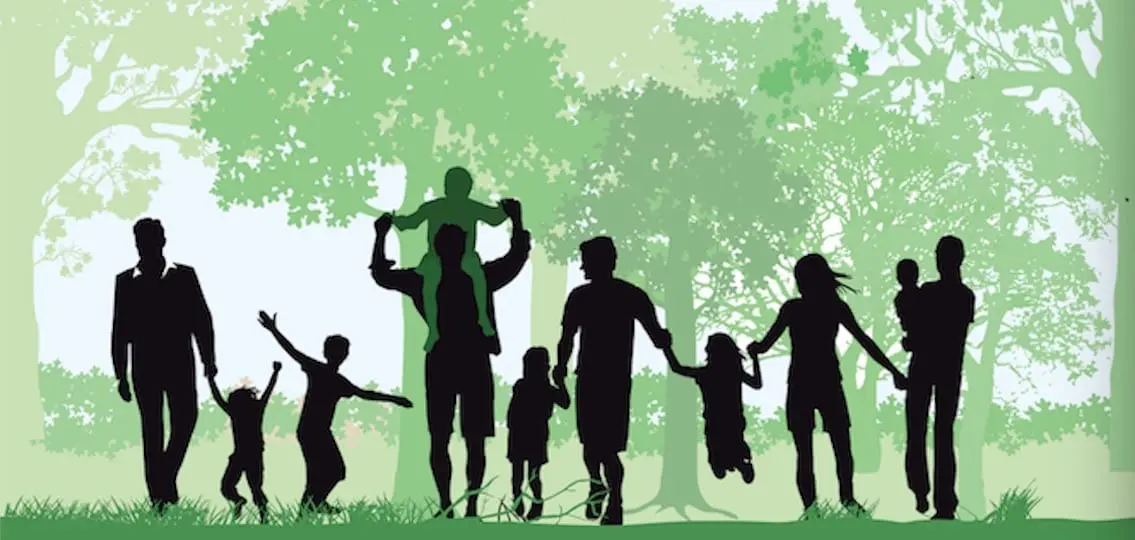We’ve all heard the quote, “It takes a village to raise a child.” To me, it’s more than a simple phrase—it’s a way of life.
I was raised by a single mother, and I wouldn’t be the man I am today if not for the village that invested in me. Extended family, neighbors, teachers, and my mother’s co-workers all contributed to my upbringing in significant ways. They encouraged me. And other times, they disciplined me without a second thought because they wanted to make sure I grew up with the skills to become a productive member of the community.
Our villages are disappearing today. My relatives and neighbors could intervene in my life whenever it was necessary, but they couldn’t do so in today’s culture. Everyone minds their own business, and the notion of communal parenting seems old-fashioned.
Bringing Back Communal Child Rearing Culture
I used to lament this changing dynamic until I realized I had the power to change it. I decided to follow the example of those who invested in me and invest in this generation of kids. Two years ago, I volunteered to mentor a group of young men. When I first met them, they were a rowdy pack of middle school boys from various ethnic and economic backgrounds.
Some lived with two parents and others with one. The director of the program almost apologized for assigning them to me. “I have to warn you that these boys can be a little challenging,” he said. “I hope you’re up to it.” I assured him that I was. He introduced me to the boys and released them to my care.
I worked hard to earn their trust, but they rejected me and refused to let their guard down. One of the boys, “Jack,” was especially disrespectful and combative. He made a point to disrupt our sessions and point out how much more he liked the previous mentor. After a while, I started to hope that Jack wouldn’t show up for the meetings. My time with the boys was more pleasant when he wasn’t there to interrupt and cause trouble.
However, Jack was rarely absent and seemed intent on antagonizing me. I tried to remain positive, but my frustration led me to wonder if working with these boys was even worth it. I considered leaving several times, but I knew that they would feel abandoned and rejected. Fortunately, I had a breakthrough with Jack that changed the whole dynamic. One day after the meeting, I noticed Jack’s mother walking down the hall. I grabbed Jack’s arm and told him to come with me. His eyes grew wide when he noticed that I was making a beeline towards his mother.
Parenting Takes A Village
“Are you Jack’s mom?” I asked politely.
“Yes,” she said tentatively. “Who are you?’
“I’m Jack’s table leader,” I said extending my hand. She turned toward her son and gave him an icy glare.
“What has he done now?” she said, immediately dropping my hand.
“He hasn’t done anything wrong,” I said. “I just wanted to tell you that your son is a great young man. He is a natural leader, and I’m proud to be a part of his life.”
My statement surprised both Jack and his mom. They looked at each other, and then his mother turned back toward me. “Just let me know if you have any trouble with him,” she said.
“Don’t worry,” I said. “He won’t give me any trouble.” And from that moment, he didn’t give me trouble. In fact, our relationship has grown strong over time. Jack has even convinced the other boys to let down their guards and trust me.
I support the boys by listening to their hopes, dreams, and concerns, attending their sporting events and taking them to play paintball or laser tag. They’re still rowdy and rambunctious, but their hard exteriors have melted, and they’ve let me inside their private lives.
I’ve also developed close bonds with the boys’ parents; they’ve made me a part of their village. And conversely, they are now a part of mine.




